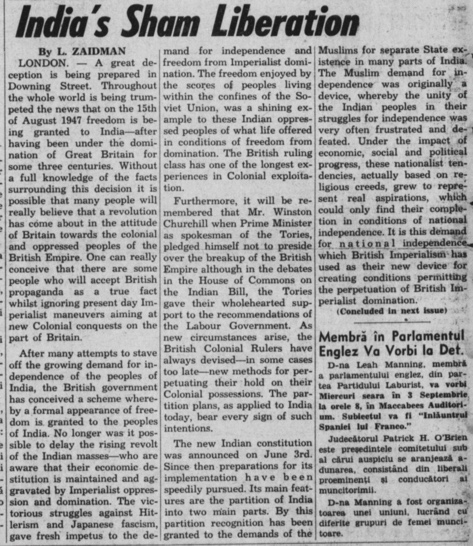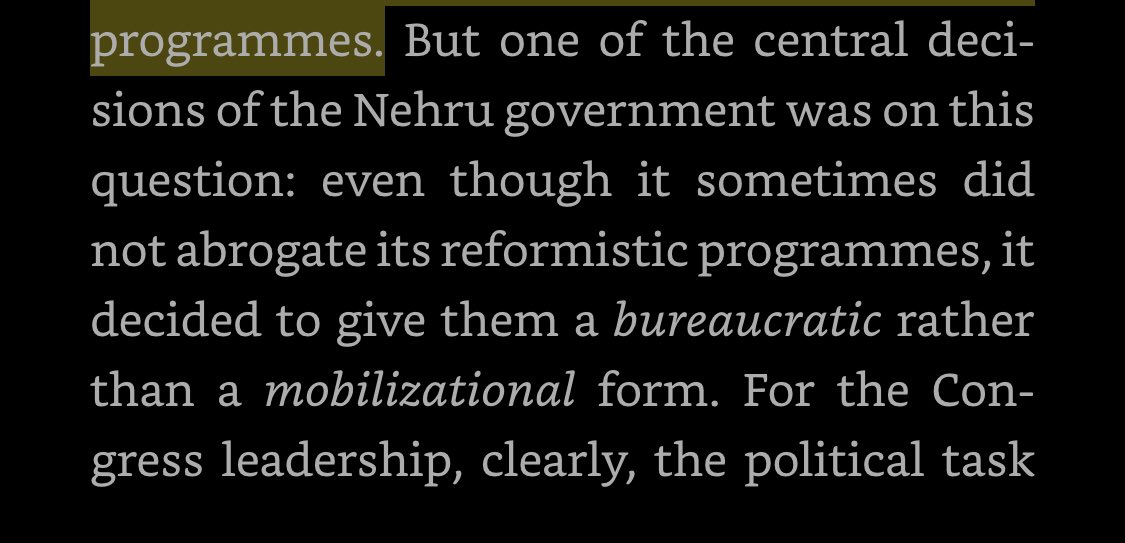
An interesting article found in the Romanul American (a Soviet-aligned publication for Romanian Americans based out of Detroit), published on August 30, 1947 on "India's Sham Liberation" 

"A great deception is being prepared in Downing Street. Throughout the whole world is being trumpeted the news that on the 15th of August 1947 freedom is being granted to India--after having been under the dominion of Great Britain for some three centuries"
"Without a full knowledge of the facts surrounding this decision it is possible that many people will really believe that a revolution has come about in the attitude of Britain towards the colonial and oppressed people of the British Empire"
"One can really conceive that there are some people who will accept British propaganda as a true fact whilst ignoring present day Imperialist maneuvers aiming at new Colonial conquests on the part of Britain"
"After many attempts to stave off the growing demand for independence of the peoples of India, the British government has conceived a scheme whereby a formal appearance of freedom is granted to the peoples of India."
"No longer was it possible to delay the rising revolt of the Indian masses-- who are aware of their economic destitution is maintained and aggravated by Imperialist oppression and domination"
"The victorious struggles against Hitlerism and Japanese fascism, gave fresh impetus to the demand for independence and freedom from Imperialist domination"
"The freedom enjoyed by the scores of of peoples living within the confines of the Society Union, was a shining example to these Indian oppressed peoples what life offered in conditions of freedom from domination"
"As new circumstances arise, the British Colonial Rulers have always devised-- in some cases too late-- new methods for perpetuating their hold on their Colonial possessions. The partition plans, as applied to India today, bear every sign of such intentions"
"The new Indian constitution was announced on June 3rd. Since then preparations for its implementation have been speedily pursued. its main features are the partition of India into two main parts."
"The Muslim demand for independence was originally a device, whereby the unity of the Indian peoples in their struggles for Independence was very often frustrated and defeated"
"Under the impact of economic, social, and political progress, these nationalist tendencies, actually based on religious creeds, grew to represent real aspirations, which could only find their completion in conditions of national independence"
"It is their demand for national independence which British imperialism has used as their new device for creating conditions permitting the perpetuation of British Imperialist domination"
• • •
Missing some Tweet in this thread? You can try to
force a refresh












